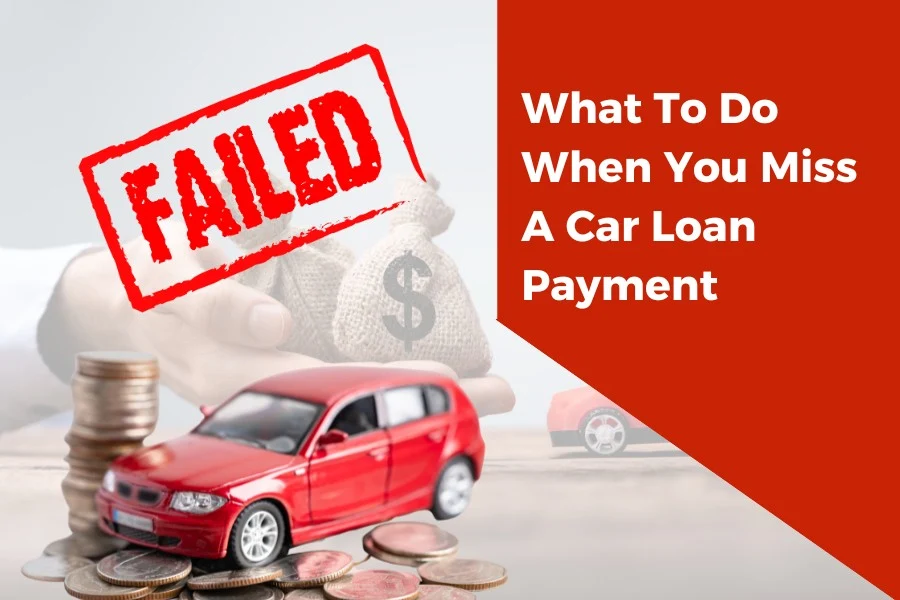-

-
-
Phone No. 9811893833
-
Address New Delhi 110045
-





Missing a car loan payment can be a stressful experience, especially if you're unsure of the consequences or how to address the situation. Whether you missed a payment due to an oversight or financial hardship, it’s important to act quickly to mitigate the potential negative impacts on your credit score, financial stability, and vehicle ownership. This practical guide will walk you through the steps to take if you’ve missed a car loan payment, helping you get back on track and protect your financial future.
Before diving into what to do next, it’s essential to understand the potential consequences of missing a car loan payment. These can change based on your lender's policies and how late the payment is.
The next step is to review your car loan agreement to understand the specific terms and conditions related to missed payments. Your loan agreement will outline the grace period, late fees, and the lender’s policies on late or missed payments. Knowing these details can help you assess the situation and prepare for your next steps.
If you’ve missed a payment, the most important thing you can do is contact your lender as soon as possible. Open communication is key to resolving the situation and potentially minimizing the consequences.

Once you’ve contacted your lender and discussed your options, it’s crucial to make up the missed payment as soon as you can. The longer you wait, the more difficult it will be to catch up, and the greater the risk of late fees, credit score damage, and potential repossession.
If you’re able to, pay the full amount due, including any late fees, to bring your account current. If that’s not possible, discuss with your lender the possibility of making partial payments or catching up over time.

If you’re consistently struggling to make your car payments, it might be time to consider refinancing your loan. Refinancing can help lower your monthly payments by securing a lower interest rate or extending the loan term. While refinancing may increase the total interest paid over the life of the loan, it can provide immediate relief and help you avoid further missed payments
When considering refinancing, shop around to compare offers from different lenders, and consider both traditional banks and online lenders. Be sure to factor in any fees associated with refinancing to determine if it’s the right option for your situation.
Missing a car loan payment is often a sign that it’s time to reassess your budget and financial situation. Take a close look at your income, expenses, and debt obligations to identify areas where you can cut back or make adjustments.
After you’ve addressed the missed payment, it’s important to monitor your credit report to ensure that any negative impact is accurately reflected and to watch for signs of recovery.
Missing a car loan payment can be a daunting experience, but it doesn’t have to lead to long-term financial trouble. By acting quickly, communicating with your lender, and taking steps to get back on track, you can minimize the impact and protect your financial well-being. At DreamCarsFinance, we’re here to help you navigate the challenges of car financing, offering support and solutions tailored to your needs. If you’re struggling with your car loan, don’t hesitate to reach out for personalized advice and assistance.
Start by entering the total loan amount you require to purchase your dream car. This includes the vehicle's purchase price, taxes, and any additional fees or charges associated with the loan.
+91 9811893833
dreamCarfinance11@gmail.com
apply@dreamcarsfinance.com
query@dreamcarsfinance.com
servicerequest@dreamcarsfinance.com
New Delhi 110045
Copyright © 2023 Your contact details are protected with us and owned by Tact Wise Advisory. Designed By Seo To Webdesign